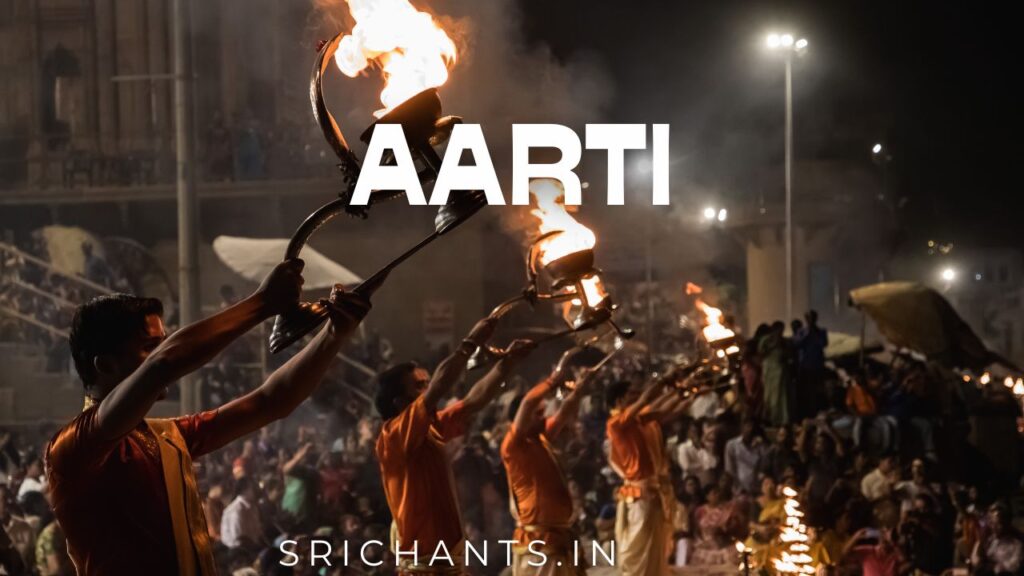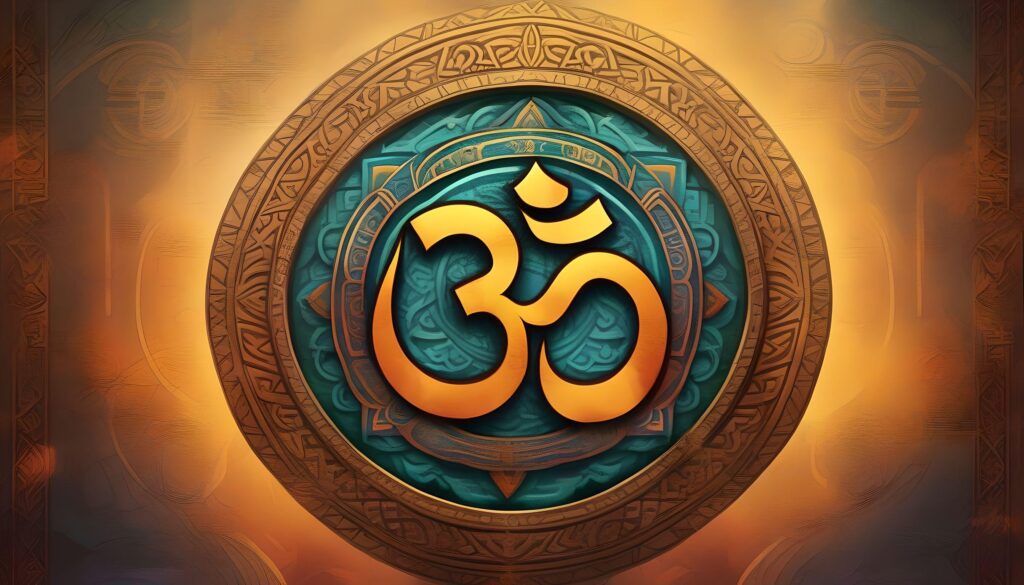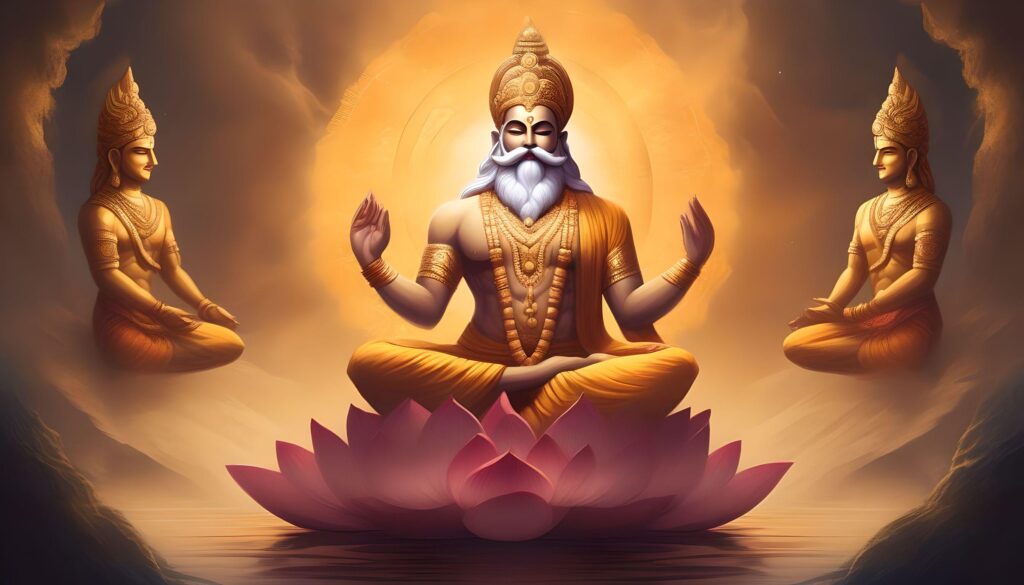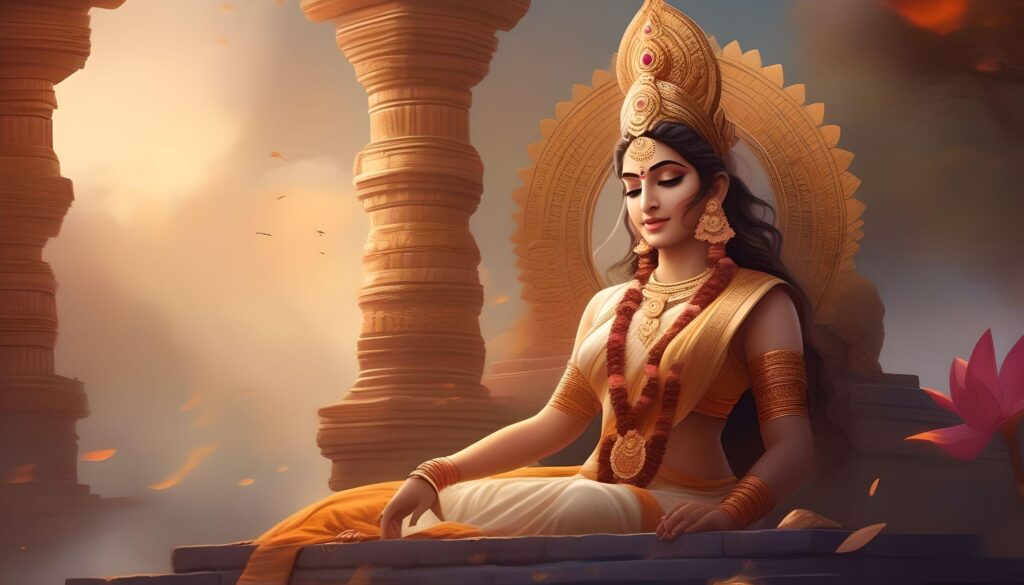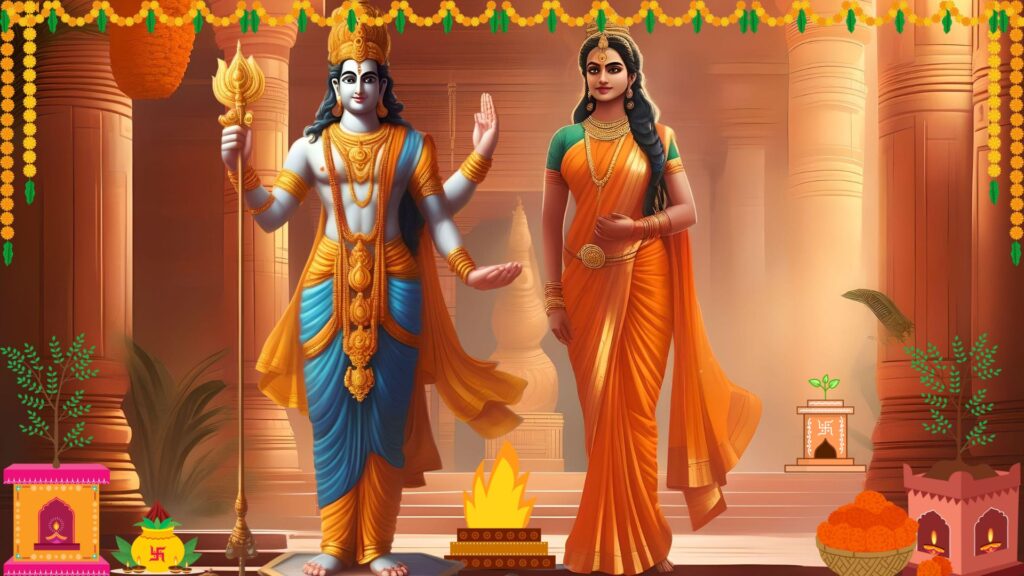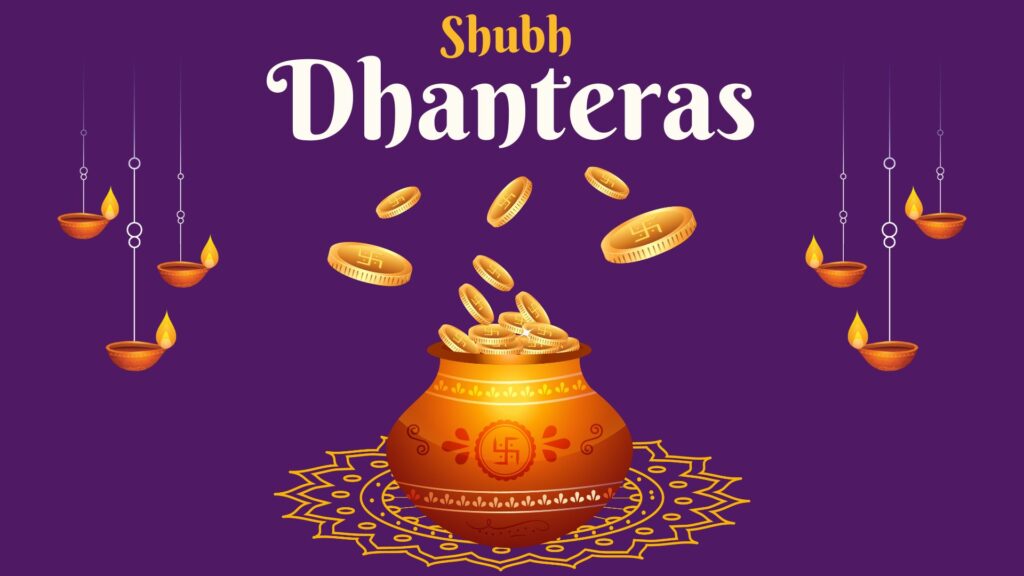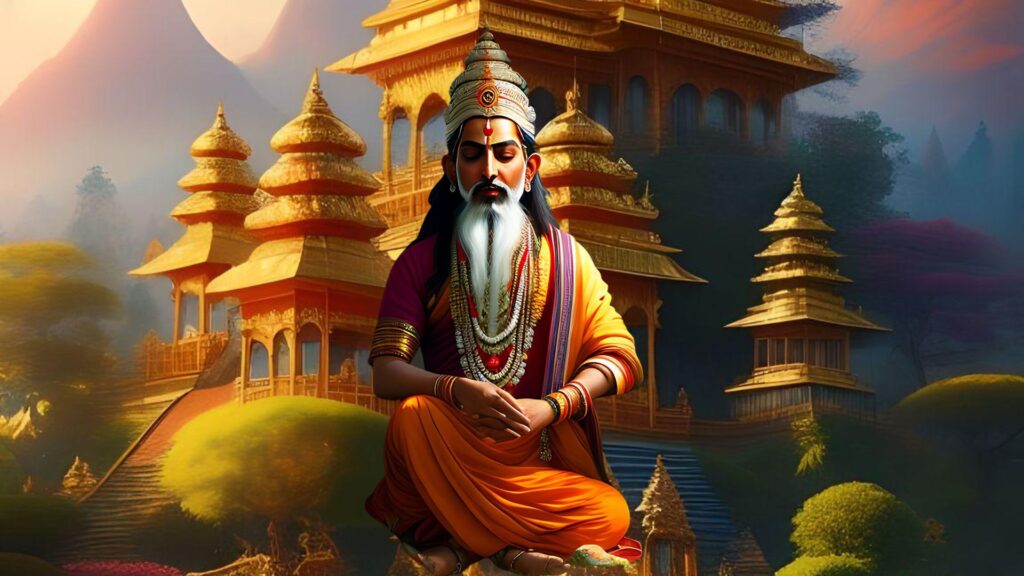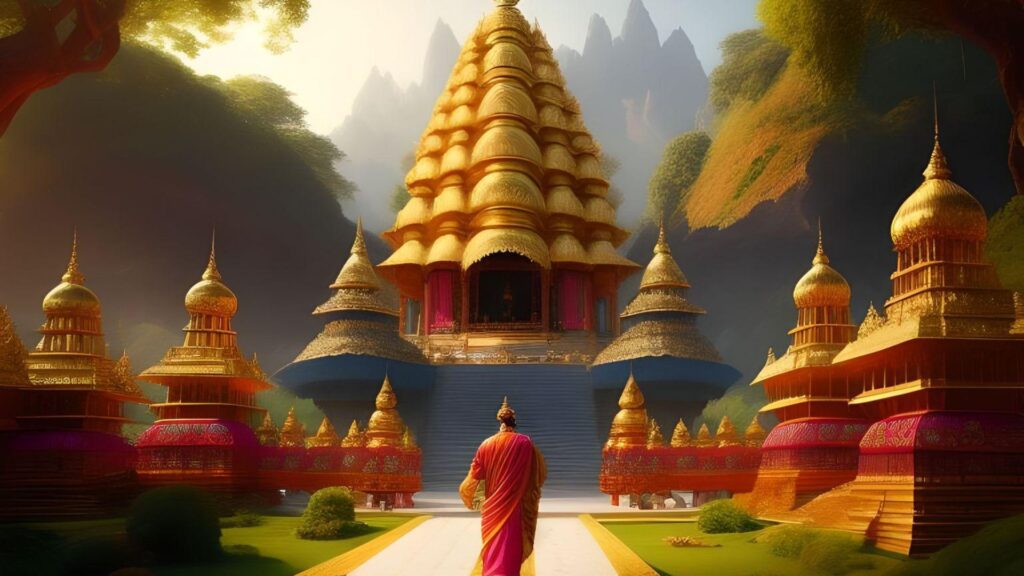Aarti: The Hindu Ceremony of Light
Introduction:
Rites and ceremonies are of considerable importance in Hinduism as they serve as a means of honoring deities and conveying devotion. One of the most significant and widely observed rituals is the Aarti, which is alternatively referred to as the ceremony of lighting. An Aarti is a devotional observance conducted in order to appease the benevolent deity and convey appreciation for the favors bestowed upon one. This article will explore the significance, meaning, and origins of the Hindu worship ritual Aarti.
Origins of Aarti
Homa, which refers to ancient Vedic fire rituals, are the origins of the Aarti ceremonial. The origin of the Aarti practice is thought to be the custom of illuminating a murti, which is a sacrosanct image situated within the dimly lit recesses of the inner sanctum of a temple. In order to grant devotees darshan, or a glimpse of the deity, priests would perform prayer or utter Vedic mantras while waving an oil lamp from the head to the toe of the murti. This practice evolved into the Aarti ritual as time passed.
Meaning of Aarti
The term “Aarti” finds its origin in the Sanskrit word “aarati,” a compound word consisting of the prefix “aa,” signifying completeness, and the verb “rati,” signifying affection. Consequently, Aarti signifies an embodiment of unwavering and consummate devotion to God. It is executed with profound veneration, adoration, and mindful meditation.
Practice of Aarti
Often referred to as the “ceremony of light,” the Aarti ceremony consists of the waving of lit wicks or camphor in front of the sacrosanct images of deities. It is believed that the flames emanating from the lanterns harbor the affection, vitality, and favor of the deities. Sadhus (Hindu monks) and pujaris (devotee attendants) typically conduct the Aarti in temples or in the homes of devotees.
Lighting the wicks or camphor and presenting additional auspicious objects, including incense, flowers, and water, initiates the ceremony. Chamar (whisp) or white cloth undulating is an additional component of certain Aartis; these items represent the five elements of the universe. The Aarti prayer is fervently sung in the presence of musical instruments such as conch shells, drums, and chimes. While chanting petitions or reciting mantras, the priest or devotee gestures with the lit wicks in a clockwise direction around the deity.
Following the conclusion of the Aarti, the lighted wicks are circulated among the members of the congregation, affording them the opportunity to behold the bounties encapsulated within the flames. Following the act of hovering their palms above the flame, devotees touch their eyes and head in reverence, which signifies the reception of purifying blessings from the deities.
Significance of Aarti
The Aarti ceremony holds profound spiritual significance in Hindu worship. It represents several symbolic meanings and spiritual sentiments:
- Overcoming Worldly Desires and Ego: Just as the wicks burn in the service of the deities, devotees pray to selflessly offer themselves in the service of God. They seek to eradicate their ego through humble worship and selfless service.
- Dispelling Ignorance: The waving of the lighted lamps symbolizes the dispelling of ignorance and false understanding. It represents the pursuit of true knowledge of God and the guru, which can remove darkness and guide devotees towards spiritual enlightenment.
- Gratitude and Love: Through the Aarti ceremony, devotees express their complete love and gratitude towards God. It is an opportunity to show reverence and devotion to the divine, recognizing God as the creator and operator of the universe.
- Purification and Blessings: The flames of the Aarti are believed to purify the gross and subtle bodies of devotees, energizing them for spiritual growth and evolution. The blessings of the deities are transmitted through the flames and received by the devotees, bringing them closer to the divine.
Different Types of Aartis
Aartis are performed at specific times during the day, relating to different aspects of the deities’ routine. While the number and types of Aartis may vary across different temples and traditions, the five most common Aartis are:
- Mangala Aarti: Also known as the auspicious Aarti, it is performed at dawn when the deities offer their first darshan of the day, signifying the auspicious beginning of the day for devotees.
- Shangar Aarti: This Aarti is performed in the early morning after the deities have been dressed and adorned, allowing devotees to have darshan of the beautifully adorned forms of the deities.
- Rajbhog Aarti: The Rajbhog Aarti takes place at midday, after the deities have been offered their midday meal. It signifies the royal offering and the completion of the main meal of the day.
- Sandhya Aarti: The Sandhya Aarti is performed in the evening when the deities offer their special evening audience. It is one of the most popular Aartis and often attracts a large number of devotees.
- Shayan Aarti: The Shayan Aarti is the final Aarti of the day, performed in the late evening when the deities are about to retire for the night. It expresses gratitude for the wonderful day and seeks blessings for a peaceful night.
Conclusion
The Aarti ceremony is of great religious importance in Hinduism. It is a prayerful ritual conducted in profound reverence, thanksgiving, and affection for God. Devotees manifest their utmost devotion to the divine, dispel ignorance, and pursue purification by means of waiving lit lamps. An opportunity to express gratitude and obtain divine blessings, the Aarti additionally functions as a reminder to maintain vigilance and resist worldly desires. Engaging in the Aarti ceremony engenders a profound spiritual encounter that fortifies the bond between devotees and the celestial being while cultivating a communal spirit characterized by solidarity and devotion.
It is important to bear in mind that Aarti constitutes merely one facet of Hindu worship, frequently supplemented by additional rituals, petitions, and festivals. A profound appreciation for the dynamic culture of Hinduism and a more profound spiritual voyage can result from an examination and comprehension of the intricate tapestry of Hindu rituals and ceremonies.
